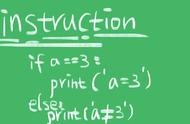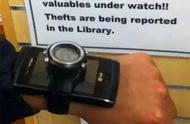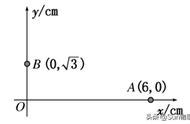词组
as a result/as the result of因此/由于…的结果/结果
at the beginning of在…开始时
at the end of在…结束时
at this time此刻,此时
be good at擅长于
be interested in对…感兴趣
by the way顺便说一下
come on来吧,快来;跟我来
find out找出,发现,查出(真相)
for the first time第一次
form dawn until dark从早到晚
general idea大意
give one's regards/best wishes/love to sb.向某人问好/致意
send one's best wishes/love to you某人向你问好/致意
go away走开,离开
go on doing sth.继续不停地干某事
go on to do sth.接着去干某事
have a good holiday假日过得愉快
have sh. doing sth.(=let/make sb.do sth.)请/让/派某人干某事"
I must go/be off/be leaving now.现在我该走了。
in one's opinion(=in the opinion of)据…看来,依照某人的看法
in pairs成对地
introduce sb.to sb.把某人介绍给某人
Nice to meet/Nice meeting you.见到你很高兴
pen friends笔友
prefer A to B喜欢A甚过喜欢B
right now(=at the moment)此刻
take care of(=look after)照料,照顾
the States美国
time area时区
⒈holiday与holidays
holiday作假日讲。假日有时是一天,有时是好几天,后者就成了假期了。所以holiday可以说a holiday,也可以说holidays,如the summer holidays(=the summer vacation)。
holiday也可作为“节日”解。如:Christmas is a holiday for everybody.圣诞节对于每个人来说都是一个节日。
Did you go to New York for the Christmas holidays?你去纽约度圣诞假期了吗?注意:holidays加了s.
⒉go on doing sth.与go on to do sth.
go on doing sth.继续做某(同一)件事。如:After we stopped for a rest,we went on listening to the radio.我们停下休息了一会儿,又继续听广播。
go on to do sth.接着做(另一件事)。如:She sang a song.Then she went on to dance.她唱了一首歌,然后又去跳舞。
⒊sometime,sometimes,some time
sometime(过去或将来)某个时候,如:We'll go there sometime next summer.下一个夏天某个时候我们将到那里去。
some time一段时间,如:We are going to stay here for some time.我们打算在这儿待一段时间。
sometimes有时,如:Sometimes he comes by train.他有时乘火车来。
⒋vacation与holiday
holiday是英国的普通用语,指一个正式的假期,人们可在家中度过或到外地旅游。而美国人则常用vacation一词。
如:In this job you get four weeks' holiday(vacation).做这个工作你有四个星期的假期。
在英国英语中,vacation用来指大学的假期。
⒌have to与must
must指说话人的主观看法,表示主观需要或责任感的驱使有必要或有义务去做某事,该词只有一般现在和一般过去时,其他时态用have to 代替。如:We must be there on time.我们一定准时到达。
have to表示客观存环境所限,即客观要求(无奈)而为之,有时态变化,在否定句中,意为“不必”。如:I have to leave school because my family is poor now.因为家里穷了,我不得不退学。
⒍at the beginning与in the beginning
at the beginning 有两种搭配:
⑴与表示位置的词搭配(在前头)。如:The captain stood at the beginning of the line.队长站在队伍的最前面。
⑵与表示时间的词语搭配(在开头、起初)。如:Mao Zedong began to search for the truth at the beginning of this century.在本世纪初,*就开始探索真理。
in the beginning:当初,起初,相当于at first。如:They didn't believe me in the beginning.当初,他们并不相信我。
-----词组
allow sb.to do sth.允许某人干某事
at the back of在…的背后
in the front of在…前面
by the side of在…旁边/附近
do some shopping买东西
fill A with B用B装满A
fill in填写,填上,填充
first of all首先
follow one's instructions遵循某人的指示
give instructions作指示
hold up举起
instead of代替
lend sb.sth/lend sth.to sb.把某物借给某人
borrow sth.from sb.向某人借某物
make a face/make faces作鬼脸
make/be sure(that)务必,务请
none of(三者以上)都没有
(be) on holiday度假,休假
back…put把…放回原处
show sb.sth./show sth.to sb.给某人看某物
show sb.how to do sth.向某人说明该如何做某事
take out取出
turn off(the electricity/water)关(灯/水)
turn on(the electricity/water)开(灯/水)
close/shut(the door/window)关(门/窗)
open(the door/window)开(门/窗)
-----⒈borrow与lend
borrow:借入,表示从对方借到自己手中,往往与from搭配使用。如:We're going to borrow bats from Tom.我们要向汤姆借球拍。
lend借出,将自己的物品借给别人使用,往往与to搭配使用。如:Please lend me two yuan(=Please lend two yuan to me)请借给我两元钱。
但“借”这一含义与一段时间状语连用时,应用keep一词来表达。如:Can I keep this book for two weeks?这本书我能借两星期吗?
-----⒉as与like
⑴表达人和事物或动作状态之间的相似,用作介词时,两者意义有细微差别。
如:He works like a teacher.他像老师那样工作。(不是老师)
He works as a teacher.他作为一个老师而工作。(当老师)
⑵可作连词,连接方式状语从句或比较状语从句,在比较状语从句中,其中谓语动词往往可省略,引导定语从句时,常和the same,such连用,构成习惯搭配。(除在口语中)like一词不能连接从句。
如:You must work as he does.(从句 as he does)你必须像他那样工作。
This book is as difficult as that one.这本书和那本书一样难。You are the same age as he is.你和他岁数一样大。
-----⒊turn off与shut,close
⑴turn off:(stop a flow of water,gas or electricity,etc.)关(水、煤气、电等),反义词是turn on(打开)。
如:Please turn off the television.请关掉电视机。
⑵shut:关(牢),闭(门,嘴),shut off与turn off同义。
如:He shut his eyes and tried to sleep.他闭上眼睛想睡觉。
⑶close:关、闭、合,常指把开着的门窗、盒、箱等关闭起来,与shut同义,但比shut更常用。
如:We have decided to close the factory.我们决定关闭这个工厂。
close 还有“结束”的含义,如:We closed the meeting ahead of time.我们提前结束了会议。
比较:Close the door.把门关上。Shut the door.用门闩、插销等东西把门关上,使之不能通过。
----⒋allow,let与permit的区别
三个词都有“允许”含义,但有细微的差异。
permit:允许(比allow正式),指规章制度、法令、法规所给予的权利,或者指条件均可,多少有一点赞同之意。如:The rules of our factory don't permit smoking.我们厂规定不准抽烟。
allow:让,听任(比let正式),含义消极,听任或默认某人去做某事,仅表达不想妨碍的意思。如:I will allow him to spend money as he pleases.我会让他按自己的意愿花钱。(听之任之,默许)
let:让(较口语化),但更多地指不予以反对和阻止,后面跟不带to的不定式。如:Let me have a last look at my motherland.让我最后看一眼我的祖国。
--⒌none与no one的区别
A:Did anyone come to see me?有人来看我吗?B:No one.没有人来。(这时anyone并无限定范围,因此答语用no one而不是none。)
A:Did any one of my family come to see me?我家里有人来看我吗?B:None.没人来。(any one所指的范围限定在我的家庭成员之中,因此答语用none。)
----⒍in the corner与on/at the corner
in the corner:表示内向角,如:in the corner of the room这房间的角落。
at/on the corner:表示外向角,像街头道、书桌等。如:at/on the corner of the street在街道的拐角。
--词组
a great/good many(=a large number of)非常多的
and so on等等
ask for/ask…for询问,请求,向…要某物
be doing well/fine in…(在工作学习等方面)做得好
bring in引进,带进,吸收
change from to…从…变到…
change into变成
come about(=happen,take place)产生,发生
come into进入
(the)difference between…and… …和…之间的差异
different from不同于
have some/no difficulty in doing sth.在…方面有/无困难
have difficulty with sth.…方面有困难
(seven people)in/out of ten十分之(七的人)
just as正如,正像
more or less或多或少
no more/not…any more不再,再也不
right away(=at once)立刻
take/have an exam参加考试
fail(in)the exam考试不及格
pass the exam通过考试
the same as像…一样
way of life生活方式
written English书面英语
spoken English口头英语
--⒈道歉的说法
I beg your pardon.请原谅。这是正式的表示歉意的说法,侧重于没听懂或没听清别人的话时,要求对方再说一遍的场合。
I am sory.对自己的过失或过错行为表示较有诚意的道歉,如:I am sorry for being late again.抱歉,我又迟到了。
Excuse me.是一句客套话,可译为“对不起”、“借光”、“劳驾”等,可指原谅轻微的冒犯或过失,也可指宽恕较严重、但不常犯的过失,该词也常用于因引起别人不便而表示歉意。如:Excuse me,I must be off for a moment.对不起,我得离开一会儿。
--⒉between与among的区别
between一般指两者或两方之间。如:The difference between Tom and Jack came into being a long time ago.汤姆与杰克的之间的分歧由来已久。
among用于三者或三者以上的场合。如:I lived among the workers and learned a lot from them.我生活在工人之中学到了很多东西。
--⒊for example与such as
for example:举一个例子,比方说。该短语用来指上文提到过的一些人或事物中的一个,作为插入语不构成句子成分。如:The government has cut spending in several fields,for example,education.政府已经削减了几个方面的开支,例如,教育。
such as:(namely)例如。该词用来进行一连串列举,注意不要将所说内容全部列举,也不能与and so on (等等)进行搭配。
--词组
all night long整个夜晚
all day long整个白天
at a high price高价
be about to即将
be made of是由…制成的
be made from是由…制成的
by road走大路
every two or three years每隔两、三年
for miles and miles一连好几英里
get back回来,返回
give sb.my regards代我向某人问好
go on holiday去度假
be on holiday在度假
go swimming/shopping…去游泳/去买东西/…
Good luck!交好运!
Bad luck!真倒霉!
have a good/nice time过得愉快
have a good/nice trip旅途愉快
move on继续移动
newspaper reporter新闻记者
nothing except(=nothing but)只有
play the guitar/the piano弹奏吉他/钢琴
Say hi/hello to sb.(from me)(代我)向某人问好
see sb. off给某人送行
see you再见
take a taxi乘出租车
take off(飞机)起飞,脱衣帽
--⒈but,except与besides的区别
⑴but与except:一般来说but与except可以换用。如:We saw nothing but/except a broken bike.除了一辆破自行车我们什么也没有看见。
but主要用在不定代词(no,all,everything等)之后或特殊问句中疑问代词(who,what)之后,表示排除的意思。如:Who but you was late for class?除了你之外,还有谁上课迟到呢?
另外,在当前的谓语动词是do时,but后面跟不带to的不定式作宾语;当前面的谓语动词不是do时,but后面跟带to的不定式作宾语。但except后不能带to的不定式。
如:He can do nothing but run away.他无能为力,只有逃走。
⑵except与besides:except表示减去(排除)其后面的内容,即从总体中除去一部分,这时与but在用法上无多大区别,只是except的语气更强烈一些。besides表示加上其后面的内容“除…外,还有”。
如:The other students went to the park except Li Lin.除了李林(没去),其余的学生都上公园去了。
--⒉across与through的区别
⑴across侧重于穿过,或横穿平面(与on的含义有关联),如:We ran across the street when the traffic light was red.当交通灯是红色时,我们跑步穿过街道。
⑵through侧重于向纵深展开,有时表示首尾贯通(与in含义有关联),如:We traveled through the long valley to the seaside.我们旅行穿过一条长长的峡谷,一直来到海边。
--⒊love to…与love v.-ing 的区别
⑴love v.-ing有惯常的意思,如:She loves having a lot of cats.她总是爱养猫。(这说明一种惯常情况)
⑵love to表示爱好。如:She loves to swim in the river.她喜欢在河里游泳。(仅仅说明一种爱好)
---词组
break the rules违反规则,违反规定
carry away带走
grow up成长,长大成人,成年,生长
in fact事实上
in or around…在…内外
in order to为了
in the past在过去
in the shade在阴凉处
in this way这样
keep…away from使…远离
knock down撞倒
obey the rule遵守规则
since then(=since that time)从那以后
so that以便
stop sb.(from) doing sth.阻止某人做某事
the rest其余的
thousands of成千上万的
twice a year每年两次
wash away冲走,冲垮
--⒈bring,take,fetch的区别
bring:拿来(把东西带到说话人所在地或将要去的地方),如:He brought me a present.他给我带来了一份礼物。
take:拿(到另一地方)去,如:I went to his house and took him a present.我去他家,给他带去一份礼物。
fetch:拿来(到另一边去拿到手并带回来)。如:I have to fetch my children at 5:00.5点钟时,我得去把孩子接回来。
--⒉soil,earth,ground的区别
生长植物的土地可称为soil,earth,ground,如:Crops grow well in rich soil(earth).肥沃的土壤里长出好庄稼。
ground又指可以行走的地面(室内称floor);soil侧重指生长植物的浅表层,还可指国土;earth指土地的浅表层或深层,还可指地球。
--⒊in the past和in the past 带数字的时间
in the past,时态一律用过去式。很明显,这是特指过去某段时期。如:In the past they cut down many trees.过去,他们砍伐了许多树木。
in the past 带有数字的时间(或few years,months等),如:in the past two years,不解释为“在过去的两年中”,而解释为“两年以来”,但不能说since two years。时态跟完成时态。如:In the past two years they have cut many trees.两年以来他们砍伐了不少树木。
--词组
agree on商定,决定,达成共识
as follows如下
at least(=no less than)至少
at the crossing在十字路口
begin…with以…开始
by sea通过海路,乘船
do (a lot of) walking步行(很多路)
far away(=a long way from)远离
How far…?多远?
How long…?多久?
in bold用黑体
none of…(三者以上)全部都不
not all…并非全部都不
plenty of充足的,相当多的
put up挂起,贴
school-leaver(中小学)毕业生
set up建立,创立
sound lab语言实验室
spend (money) on sth.花钱买…,在…花费(钱)
spend (money/time)(in)doing sth.花钱/时间干某事
supply sth.to sb./supply sb.with sth.供给某人某物
take a look at(=look at)看一眼
take/have a picnic野餐
training centre培训中心
--⒈mean的用法
mean 名词,意思为“意味着…”。 mean后面不用to不定式。若要跟动作就必须使用动名词(v.-ing)形式。
如:This will mean a great many jobs for school-leavers in the province.(=This will mean offering school-leavers in the province a great many jobs.)这将意味着给这个省的中学毕业生带来大量的就业机会。
mean to意思为“有意要…”,而不解释为“意味着…”。如:I didn't mean to start new businesses in this city.我无意在这个城市开设新的商行。
---⒉notice与take notice of区别
notice:(无意)注意 ;take notice of:(有意)注意
-⒊job与work的区别
job和work都可指为了谋生而做的事,如:He went to find a job.他去找工作。He has much work to do.他有很多工作要做。
但job是可数名词有单复数形式,指各种有收益的工作,长期的或短期的或指固定的工作;work是不可数名词,泛指各种工作,无复数形式。
如:What interesting work!What an interesting job!多么有趣的工作!
work虽不能与冠词“a”直接搭配使用,但可以与量词组成短语。如:a piece of work一件工作
--词组
a great part of一大部分
a (large)number of许多,大量的(当其作主语时,谓语动词用复数)
the number of… …的数量(当其作主语时,谓语动词用单数)
as many as(数字)多达…
at high/low speed以高速/低速
at the speed of以…的速度
at the time of在…时候
be afraid of害怕
be afraid that…担心
cut off(电路)切断
fall down倒塌
fall off掉下,倒下,下降
for (quite) a while暂时,一时,一会儿
for ever永远
in all one's life在某人的一生中
more than(=over)比…多,…以上
sound like听起来像
stay up挺住,不倒塌,站立
--⒈表示倍数的表达法
…times 比较级 than…
…times as 原级 as…
…times the n. of…
如:地球是月球的49倍。The earth is 49 times as big as the moon.The earth is 49 times the size of the moon.The earth is 49 times bigger than the moon.
--⒉room“空间”
there is room for…(对于…有空位,有余地)是一个基本句型,由此变化出多种表达。有肯定句也有否定句,有固定搭配,不可擅自变动。there is room不可写成there're rooms,这里room为不可数名词。
如:There is room for three more.还有三个人的空位。
room之前可以加enough,much,否定句加not(enough,much)。
如:There is enough room in the corner to put the desk there.拐角有足够的空间可以在那儿放写字台。
--⒊a number of和the number of
a number of=some;a large(great)number of=a lot of,many,后面谓语动词常用复数。如:A number of other plants were found in America.若干别的作物在美洲被人发现。
the number of…后面谓语动词常用单数。因为the number是指“数”。如:The number of high-school students is increasing(growing).中学生的人数在增长。(谓语动词用单数)
--⒋center,middle的区别
center可指确切的中心点(如球场中心),middle除指地点外,还可指时间。
如:He lives in the center of the town.他住在城市中心地带。A policeman came up to them because they stood talking in the middle of the street.一个警察向他们走过来,因为他们站在街中间谈话。I often wake up in the middle of night.我经常半夜醒来。
--⒌one与it
两个词都可指代前面提到或出现的名词,one代替泛指含义的名词,it指代特指含义的名词。
如:Are those your picture-books?I want to borrow one.
Is the book on the desk yours?I want to borrow it.
--词组
a bowl of一碗
all kinds of各种各样的
(the) answer to the question问题的答案
A be made into B A(原材料)被制成B(制成品)
do one's best尽力,尽某人最大的努力
Help yourself to…请吃/喝点…
I am full/I've had enough.我吃饱了。
in many different ways以许多不同的方式
in the beginning(=at the beginning)在开始时
in the 17th century在十七世纪
just a little只要一点点
just now刚才
mix A with B 把A和B混合
A is mixed with B (被动态)把A和B混合起来
some more再多一点
than ever before比以往任何时候更…
think sb./sth.to be…认为某人/某物是…
too…to太…以致不…
--⒈fire的用法
fire作为“火灾”解,可以说a fire(一场火灾),fires(大火),a lot of fires(特大火灾,火势很猛)。普通的“火”就不用a或复数形式。
如:They are afraid of fire.他们怕火。
火灾(fire)是可数名词,如:There were a lot of fires all over the city.全市到处都是熊熊大火。
--⒉discover与invent
discover:发现(一个原来就有但尚未被人发现的东西),如:They discovered an oil field.他们发现了一个油田。
invent:发明(一个过去没有的东西),如:The foreigner invented a computer.那个外国人发明了计算机。
--⒊boat与ship
boat多指“游艇”、“帆船”、“小木船”和“小汽船”;
ship多指海上航行的“大轮船”、“飞船”。
--⒋get ready,prepare与prepare for
“prepare”强调“准备”的动作或过程。如:He is preparing lessons.他在备课。
“get ready”强调“准备就绪”的状态或“使…做好准备”,并预示将来的动作。如:The peasants have got everything ready for the spring ploughing.农民们为春耕作好了一切准备。
“prepare for”意为“为…做准备”,指做好准备应付某事,喑含所需要时间较长的意思。如:The farmers are preparing for the spring ploughing.农民们正准备春耕。
--⒌in the way与on the way
in the way:(人或物)挡路;on the way:在路上
如:On the way home,he found a big stone in the way.在回家的路上,他发现一块大石头挡在路上。
--词组
a waste of time/money浪费时间/钱
at one time曾经有个时候,以前
both at home and abroad在国内外
bring down the price降低价格
CAAC中国民航
free seats空座位
(price) go up(价格)上涨,上升
in a few years' time几年以后
keep a record (of)把…记录下来,作记录
make a decision(=decide)决定,作出决定
make a plan for制定计划,为…作计划
make a mistake犯错误
make a noise出声
make a promise允诺
make fun of (sb.)取笑(某人)
make progress取得进步
not…until在…之前不,直到…之后才
prefer to do sth.喜欢干某事
take up占据,占领,占去
thanks to由于,多亏,幸亏
the number of people人数
a number of people许多人
--⒈接不定式作宾语的动词归纳
主要有:want to do,wish to do,try to do,hope to do,have to do,used to do,stop to do,prefer to do,be used to do,mean to do,start/begin to do,forget to do,remember to do,like to do,be afraid to do,be about to do,be glad to do,be sorry to do,be able to do,would like to do,in order to do,ask sb.to do,tell sb.to do,order sb.to do,allow sb.to do,request sb.to do,be made to do
--⒉until与till用法
until与till同义,都可用作介词和连词,在否定句中与瞬间动词连用,也可与持续性动词连用,意为“直到…才…”。在肯定句中只与持续性动词连用,意为“到…为止”,但前者较正式一些,因而until引导的短语置于句首或句中,当置于句首时不能与till换用,till不能置于句首,也不能与not一起连用,但可构成“from…till”词组。
如:Until 1978 he lived in Shanghai.他在上海一直住到1978年。
--⒊information与news的区别
“information”使用范围很广,可指通过学习、读书、谈话、观察等方式获得的“情报、资料、消息、知识、信息”等,该词是不可数名词,无复数形式,也不能与an直接连用。如:I have collected some information on computers.我已经收集了有关计算机的一些资料。
“news”指事件发生后不久的消息,主要指新闻媒介所报道的重大消息或公众感兴趣的新闻,该词是不可数名词。如:No news is good news.无消息就是好消息。
--⒋complete与finish的区别
complete指(圆满地、进一步地)去完成一件未完成的东西,完成预定的任务、工程、建设等。如:I haven't completed the toy made of mud yet.我尚未制作完泥玩具。
finish 指(日常活动)完成某件事或某个动作,尤指完成工作的最后一步。如:He has finished composing a piece of music.他已经谱写完了一首曲子。
--⒌believe与believe in的区别
believe ⑴相信(某人所说话的真实性,某事的真实性,某人的诚实),如:We believe him.我们相信他说的话。
⑵认为(连接宾语从句),如:I believe that he is right.我认为他是对的。
believe in ⑴信仰,如:We believe in Marxism.我信仰马克思主义。
⑵信任(认为可靠),如:I believe in our monitor.我信任我们的班长。
--⒍hope与wish的区别
⑴hope表示可能获得的事物,但wish表示不可能获得的事物。
如:I hope to get your help.我希望得到你的帮助。
I wish I were ten years younger.但愿我自己能年轻10岁。
⑵hope与wish 都可接动词不定式,意义区别不大。
如:I wish to join the army.我渴望参军。
I hope to pass the exam.我希望考试过关。
--词组
AD公元
around the year…=about the year…大约在…年
BC公元前
compete in比赛
get hurt受伤
hand in交上,递进
have sports进行(开展)体育活动
horse-riding骑马
in modern times现代,近代
more and more越来越多
motor race摩托车赛
relay race接力赛跑
take part in参加(活动)
Olympic Games奥林匹克运动会
try one's best=do one's best尽最大努力
used to过去经常
Well done!干得好!
win gold medals获得金牌
win prize获得奖金
---⒈prefer的用法
prefer宁愿,常用的句型有:
⑴prefer (doing)sth.to(doing)sth.较…更喜欢…,宁愿做…而不做…
如:Which do you prefer,tea or coffee? I prefer tea (to coffee).
⑵would prefer to do…想要做某事
如:Are you going to do some shopping today? I'd prefer to do it tomorrow.
⑶prefer to…rather than do…宁愿做某事而不做某事
如:They prefer to die rather than ask the enemy for food.
⑷prefer sb.to do sth.宁愿某人做某事
如:I prefer you not to come today.
--⒉take part in,join,attend的区别
⑴take part in指参加某活动、会议等。如:We should take part in sprots meets. 我们应该参加运动会。
⑵join指加入某一组织团体或人群之中,成为其中一员。如:They joined the Communist Party last year.他们是去年入党的。
⑶attend指出席会议,聚会,讲座等。如:He attended the meeting and made a speech.他参加了那次会议并作了发言。
--⒊sport与game的区别
⑴sport指体力运动,既有娱乐,又有竞赛。如:We often have sports at school.我们在学校经常参加体育活动。
⑵game①指包括脑力和体力,并决定胜负的竞技活动,有一定规则。如:Let's have a game of cards.咱们打一局牌吧!
②复数形式games指大型运动会,如:Olympic Games奥林匹克运动会,sports meet指一般性运动会。
③game可表示网球、桥牌等的一盘,一局。
--⒋farther与further
两个词都可以表达far“远”的比较级,但further一词还有“进一步”的意思。
如:He jumped farther than I.他跳得比我远。
I went to Hubei Educational College for further study.我去湖北教育学院进修。
---词组
American country music美国乡村音乐
be/get angry with(sb.)对某人生气
be full of(=be filled with)充满
be well thought of对…印象/看法好
come from来自
eat up吃光,吃完
hear from收到来信
hear of/about听人说起
in the 1960s/1960's二十世纪六十年代
in the east/west在东部/在西部
make a record录制唱片
make fun of开玩笑,嘲笑,取笑
not just…but(=not only…but also)不仅…而且…
on one's travels在某人的旅行中
on/over the radio通过广播,通过收音机
on TV在电视中,通过电视
once more(=once again)又一次,再一次
pop music流行音乐
pop star流行歌星/手
so far至今,到目前为止
think of认为,看法,想起
turn to 转向,翻到…页
---⒈popular的用法
popular一词是形容词,它有三种用法:
⑴be popular,意思为“很吃香,受欢迎”。如:He is a good teacher but he isn't popular.他是一个好老师,但不受热欢迎。
⑵be popular in…意思为“在什么地方受欢迎”。如:Is pop music very popular in China?流行音乐在中国很吃香吗?这儿in 指地点。
---⒉before与ago区别
ago往往与数词连用,表达的时间从说话时算起向后推算,其所在句子中的动词用过去时。如:Three days ago he went fishing.三天前他去钓鱼了。
如果一段时间与ago构成的短语作介词的宾语时,句中谓语动词不用过去时,如:I have known her since three years ago.我三年前就认识她了。
before也可与数词连用,但表达的时间应从过去的某一时间向后推算,往往用于间接引语中。如:He said that he had bought a new type of computer two weeks before.他说两个星期前他买了一台新型的计算机。
before不与数词连用时,表达时间可截止到现在,即泛指以前,意思是“以往”,构成“never…before…”,“以前从未…”。如:I have never seen such an interesting play before.我以前从未看过这么有趣的话剧。
--⒊in the west,to the west与on the west的用法
in the west:在西部(某地域境内),如:Most of camels live in the west of China.大部分的骆驼生活在中国西部。
to the west:在西边(不在某地域境内),如:Gansu lies to the west of Hubei.甘肃省在湖北省西边。
on the west:在西边(两地域接壤),如:Russia is on the west of China.俄国在中国西边。
--⒋but与however的不同点
两词词性不同,决定句法功能也有差别。
but是并列连词,连接两个含转折意义的分句,前面不得再与从属连词though,although,as连用。如:I accepted your punishment but I still don't know why.我接受了你的惩罚,但我还不明白为什么。
however是副词,可放置在句首、句尾或插入句中,作状语,起承上的连接作用,作从属连词用,意思是“不管用什么方法”,如:You can go however you like.你爱怎么去就怎么去好了。
--⒌appear,seem与look的用法
seem:通过主观判断而得出的印象。如:What he said seemed to be true.他说的可能是真的。
appear和look可表示通过视觉得出的看法。如:He looks young.他显得年轻。
---词组
ask for sth.向(某人)要求(某物)
BBC English programmes BBC英语广播
CCTV中央电视台
easier said than done说来容易做来难
ever since甚至从…时起
Follow me.跟我学。
follow me to science跟我学科学
from month to month逐月
give advice to sb.向某人提劝告/建议
listen to China Radio International收听中国国际广播电台
of great help(=very much helpful)很有帮助
(be)on the air播送,作广播
once again又一次,再一次
pick up拾起;收听,接收
Radio English on Sunday星期天广播英语
short-wave短波
such as如,例如
tens of thousands of people成千上万的人
the more…,the more… 越…,越…
the World Service国际广播
TV English电视英语
write to sb.写信给某人
hear from sb.收到某人来信
--⒈关于air的一些词组
on the air(over the air)在广播
in the air在空中
by air通过航空途径
---⒉either与too的不同用法
两词意思都是“也”,但too用于肯定句中,either用于否定句中。
如:He is not willing to move in the new building,either.他也不愿意搬入新楼房。
They were badly wounded,too.他们也身负重伤。
--⒊possible与able的区别
possible表示可能存在或发生的,主语不能是人。如:It is possible to find a cheap house.有可能找得一处便宜的住房。
able指人做某事所需的能力、技巧、知识、时间等,通常指具有“做好某事的能力”,而且这种能力可以通过学习锻炼而获得或提高的,主语是人。如:He is an able man.他是一个能*人。
---词组
at the news of听到…消息的时候
be against/for反对/赞成
beat sb.to death把某人打死
(sb.)be beaten to death(被动态)(某人)被打死
break away from分离,脱离
break out(战争,火灾)爆发,突发
call for要求;提倡;号召
consider sb.to be/as认为…是…
fight against/for为反对/赞成…而战
for the first/second time第一/二次
in all共计,总共
join up连接起来,联合起来
make friends with与…交朋友
make enemies with与…为敌
no more than不超,仅仅
of one's own属于自己的
post office邮局
set sb.free解放/释放某人
be set free(被动态)被解放,被释放
set up创立,建立
spare time空闲时间,业余时间
the Union联邦,合众国
What's on tonight? 今晚上演什么(电影)?
---⒈suggest的用法
suggest意思为“建议”,后面跟从句,谓语多由should,might构成或省略不用,动词要用原形。但不是唯一形式。
如:I suggest (that) you (should) ask Mr Wu.我建议你应该问一下吴老师。不能说:I suggest you to ask…,但可以说:I suggest asking…(可跟动名词v.-ing,但不能表达出you)。
suggest后面不用不定式to,但可以用介词to,表示向什么人建议。如:He suggested to Mary that they (should) go for a drive.他向玛丽建议他们去开车兜兜风。
--⒉be tired of的用法
be tired of:厌于,后面跟名词(代词)或动名词。如:I'm tired of reading.我不想再阅读什么了。
be tired:疲劳,不要同be tired of混淆。 "
--⒊fun的用法
fun是不可数名词,be fun指有趣的人或事(物),不用任何冠词,不能说成a fun或funs。例如:Lao Wang is great fun.老王真是个非常有趣的人。
fun前用much,不用many,是因为它是个不可数名词。much fun,good fun,great fun都解释为十分有趣的人(事,物)。如:It isn't much fun being lost in the rain.在雨中迷了路真是扫兴的事。
---⒋no more than与not more than的区别
⑴两短语用于程度比较时辨异
no more than同…一样不,如:This film is no more interesting than that one.这部影片像那部一样没什么趣味。
not more than不及,比不上,如:He is not taller than his father.他没有他爸爸那么高。
⑵用于数量比较
I have no more than five dollars.我只有5美元。(觉得太少了)
There are not more than fifty students in our class.我们班至多50人。
--⒌shoot与shoot at
shoot:射死、击中(引起死亡);shoot at:向…射击(不涉及到结果如何)
--词组
be tired of对…感到厌烦
because of由于,因为
consider doing sth.考虑做某事
do/make the experiment进行试验
get along (well) with sb.与某人相处(好)
give advice to sb.向某人提意见
ask sb.for advice问某人有什么意见
take one's advice听取意见
have trouble with有麻烦
keep quiet保持安静
laugh at嘲笑
make friends with同…交朋友
make fun of开玩笑,取笑某人
place of interest名胜
reply to给…回信
tell lies说谎
try/do one's best尽最大努力,竭尽全力
used to过去常常
worry about担心,忧虑,烦恼
--⒈against的用法
against是介词,介词后跟名词或动名词(v.-ing)。如:He was against slavery.He was against keeping slaves.他反对蓄奴。
be against的否定形式be not against几乎不用,而用be for(赞成)。如果“强烈反对”,“十分反对”,可以说be strongly against…,以及be very much against…。
--⒉介词“to”的几个句型
answer to(名词 介词)
an end to(名词 介词)
reply to(动词 介词)
answer (动词)与answer to容易使人迷惑,如:Who can answer the question?不能说成Who can answer to the question?但可以说What is your answer to the question?
I am fighting for an end to slavery.我要为结束奴隶制度而战斗。
Don't worry;there will be an end to your troubles one day.别担心,总有一天你的烦恼事会结束的。there will be an end to…为一习惯用语,是一个固定结构。
--⒊heavy与weighty
⑴heavy“重”,“沉重”,“严酷”(指事),“悲愁”(指心态)。
如:heavy rain大雨;heavy weather阴雨;heavy heart苦闷的心;heavy problems难以回答的问题;heavy industry重工业
⑵weighty沉重的(重量很大),重大的,有影响的(比喻意义)。
如:a weighty leader一位重要的*;a weighty problem重大问题
--⒋answer与reply的区别
answer:回答(可用作及物和不及物动词,内含解决问题的意思。这包括口头和书面或行动来回答别人提出的请求、问题或号召。)如:The monitor answered my question.
reply:答复,回答,回复(作不及物动词,需带to 的介词短语。)如:The monitor replied to my question.
--⒌can与may的区别
can和may都可以表示请求允许或给予允许,但can多用于口语,较多出现在疑问句中。如:Can I ask you for some advice?我可以请教你吗?(请求允许)
may是较正式的用法,多用于否定和肯定句中,如:You may come in.(给予允许)你可以进来。You may not say it like that.你不可以那样说。
--词组
advise sb.(not)to do sth.劝告某人(不)干…
at an early age在早年
at the age of在…岁时
by the age of在…岁以前
at the doctor's在医生诊所
at the end最后
be high/low in…在…方面高/低
be rich in…在…方面丰富(充足)
be wrong with…在…方面有毛病
burn up烧掉、烧毁、消耗掉
die from死亡(主要指意外死亡)
die of死亡(主要指因疾病、年老等而死亡)
die out死绝
soft drink软饮料
strong drink烈性酒
feel bad/terrible感觉不好
feel well感觉好
have something left剩下…
heart illness心脏病
in (the) future以后,将来
one person in ten十人中有一个(十分之一)
in the form of以…形式
less than少于
lie down躺下
lose weight减肥,降体重
put on weight增加体重
play games打球,做游戏
scores of许多,大量
take exercise运动,锻炼
take the medicine服药
three times a day每天三次
twice a day每天两次
--⒈quiz,test与examination
examination通常只指正式的“考试”,如学期考试(期中,期末)、升学考试等。如:She has passed the final examination on a high standard.她以优异成绩通过了考试。
quiz 指“测验”、“小考”,特指事先无准备,随时或随堂所作的检测。如:The teacher gave us a 5-minute quiz.教师给我们一个五分钟的测验。
test 意为“小考,测试”,指一门集体的考查或考试。如:Pople who want to drive a car must pass a test.想开车的人必须通过测试。
--⒉contain与include区别
contain指包含或容纳某物而构成某物体中的一组成部分。如:Pig iron contains 4% of carbon.生铁中含有百分之四的碳。
include着重指包括整体的某一部分。如:Electricity and gas bills are not included in the rent.电费和液化气费不包括在房租内。
--词组
Be careful!小心
(the fire)be out(火)灭了,熄灭
belong to属于
(the fire)break out(火灾)发生
burn down烧毁
catch fire着火
escape from逃离,摆脱
fire alarm火警
fire escape太平梯,安全梯
fire exit火灾出口处
fire notice防火通知
get burnt被烫着
get close to靠近
in this/that case如果是这样/那样
Look out!当心,小心,留神
lose one's life丧生,牺牲
never mind没关系,别介意
offer to do sth.主动提出干某事
on fire着火,失火
pay for赔偿,付款
put out(the fire)扑灭(大火)
senior middle school高中
junior middle school初中
so…that如此…以致
Take care!当心,小心
take the lift乘电梯
too…to太…以致不
turn down关小
turn off(the gas)关闭(煤气)
turn on打开
--⒈escape与flee的区别
escape意为“逃脱”,着重指逃跑的结果(未被捕获),还可用于借喻中,表示“溜过去了”,“未注意到”的意思。如:The bird escaped from the cage. 鸟逃出了笼子。
flee意为“逃跑,飞奔”,着重指动作本身,常含有惧怕的意思,如:The enemy troops were fleeing in all directions.敌军四散逃奔。
--⒉near与close的区别
near指相距不远,尤指场所,时间,程度而言。如:The New Year's Day is near at hand.新年即将来临。
close指空间、时间上接近,靠近,其意思较near强,如说话可以听见的地方称为near,近至可以接触的两者称为close,如:There's a bus stop close to our school.我们学校附近有个汽车站。
另外close还可指“实力接近”、“关系密切”等,如:a close game一场势力均力敌的比赛;a close friend一位亲密的朋友
--词组
a year and a half(=one and half a year)一年半
at present(=now)目前,现在
collect money for为…集资
in the wild在野外
long ago很久以前
make a trip/journey旅行
milu deer麋鹿
nature park天然公园
one after another一个接一个地
one day(将来)终有一天,(过去)曾经有一天
put on (performance)演出
research centre研究中心
traffic lights交通灯,(红绿灯)
until recently直到最近,直到不久前
year by year年复一年,年年,每年
--⒈动词—ing形式作定语的用法
动词—ing形式是动词的一种非谓语形式,它在句中不单独作谓语,但它可用作句子的其他成分。
单个的—ing作定语时,放在所修饰名词的前面;—ing短语作定语时,要放在所修饰名词的后面。
如:China is a developing country.中国是个发展中的国家。The girl standing there is a classmate of mine.站在那边的那个女孩是我的同班同学。
--⒉过去分词作定语的用法
过去分词也是动词的一种非谓语形式,它在句中不单独作谓语,但它可作句子的其他成分。单个过去分词作定语时,一般放在所修饰的名词前面;过去分词短语作定语时,只能放在所修饰名词的后面。
如:A broken cup is lying on the floor.打碎的杯子在地板上。
The doctor is examining the drive wounded in the leg.医生正在给腿部受伤的驾驶员进行检查。
动词的—ing形式和过去分词都可以作定语用,但两者是有区别的:动词的—ing形式具有主动和进行的意味;过去分词具有被动和完成的意味。
比如:A burning house is a house which is burning.“burning house” 是正在着火的房子。
A burnt house is a house which has been burnt down.“burnt house”是被烧毁的房子。
--⒊until recently与since then所对应的时态
until recently解释为“直到不久前”,不可以理解为“直到现在”,“直到最近”。时态用简单过去式。如:Until recently,the only milu deer alive in the world belonged to the Duke of Bedford in England.
since then解释为“从那时起到现在”,时态用完成时态。如:Since then the number of milu deer there has greatly increased.
--⒋sick与ill的区别
⑴sick与ill都可以用作表语。如:She was sick(美国英语) with a cold.She was ill with a cold.她因感冒生病了。
⑵sick可以用作定语,但ill不能以“生病的”含义作定语。如:He has a sick look.他脸有病色。He has an ill look on his face.他的脸真难看。(但不是有病色。)
所以说a sick milu deer(一只有病的麋鹿),不等于an ill milu deer (一只恶劣的麋鹿)。
ill作定语时只解释为:坏的,难治的,不良的,恶劣的等等。它同“有病的”毫无关系。如:An ill wound is cured,not an ill name.(英国谚语)难治的伤口可以治愈,可是恶劣的名声却不能。
--⒌how soon,how long,how often的区别
⑴how soon多久,用来问某人要“过多久以后,要到什么时候”,能做好某事。
如:How soon was the ship arriving?船多久到达?
⑵how long多长时间,当我们对陈述句中的“一段时间的长短”提问时,要用how long。
如:How long has he been away from Shanghai?他离开上海多长时间了?He has been away from Shanghai for more than two weeks.
⑶how often表示“多长时间一次,是否经常”的意思,通常用来对表示频度的副词或短语(always,often,seldom,usually,every other week,once a week等)提问。
如:How often do you have your hair cut?你多长时间理一次发?I have my hair cut once a month.我一个月理一次发。
--⒍travel,trip,journey的区别
⑴travel指长途旅行,常指到国外游历。虽能作名词,但主要用作动词;它是表示“旅行”的最常用的动词,与之搭配的介词有:
travel to…往(何处)旅行;travel in…在(何处)旅行;travel through…穿过(何处)旅行;travel by…乘(什么交通工具)旅行
如:They are travelling to london next week.他们下周将去伦敦旅行。
⑵journey 一般指长距离旅行。其词义广,指包括借助于一切交通工具进行的旅行,在口语中与trip同义。这个词虽然也可用作动词,但主要是用作名词;与之搭配的动词是make(make a journey),有时也用take(take a journey),如:They are making a journey along the Yellow River.他们正沿着黄河旅行。
⑶trip只作名词,常指短途旅行,指能直接到达目的地的旅行,与之搭配的动词是make(make a trip),有时也用take(take a trip),如:He has made a trip to that place.他到那儿作过一次旅行。
--⒎common,usual的区别
⑴common普通的,常见的,指适合大部分的,强调普通性,如:common sense常识;Mary is a common name in the west.在西方,玛丽是一个很常见的名字。
⑵usual通常的,强调习惯性,如:There is a usual “goodbye”at the end of the talk.通常在谈话最后说一声“再见”。
--词组
accept the invitation接受邀请
refuse the invitation拒绝邀请
after all毕竟,终究,到底
at (the) most最多,至多,不超过
be worth sth./doing sth.价值,值得
call on/upon (sb.)访问,看望,拜访(某人)
call at (some place)访问(某地)
day and night日日夜夜
evening dress晚礼服
get married结婚
invite sb.to a ball邀请某人参加舞会
(sb.)be invited to a ball(被动态)被邀请参加舞会
just this once (=just this time)就这一次吧
look down朝下看
Lost and Found失物招领处
not…any longer不再
not…any more不再
on one's way home在某人回家路上
pay back偿还
try on试穿,试戴
--⒈jewellery与valuable的说明
jewellery是珠宝的总称,为不可数名词,没有复数形式。如:Do you have a friend who might lend you some jewellery?你有没有一个可以借给你一些首饰的朋友呢?
Is the necklace valuable?这项链很值钱吗?The necklace is valueless.这项链不值钱。valuable的反义词是valueless。
--⒉dress与coat/jacket
dress作“礼服”讲时,是指礼仪、应酬等特殊场合下穿着的正式服装,如:an evening dress晚礼服;a full dress大礼服
dress作可数名词时,指妇女的长连衣裙。妇女们的上装是coat或jacket,如:a coat/jacket and skirt(一套上装和裙子)。coat还有“上衣”,或“外套”的意思。男上衣也叫coat或jacket。
dress作不可数名词时,作“服装”解,是男女服装的总称,尤指外衣。
⒊know和recognize的区别
know表示熟悉或认识某人,也可指熟悉某地。如:We have known each other for nine years.我们相识9年了。
recognize指认出曾经见过或认识的人或物,如:I could hardly recognize my old mother.我几乎认不出我的老母亲了。
---词组
a moment or two一会儿
after work工作后,下班后
at work工作时
call at (some place)访问(某处)
call on (sb.)探望(某人)
cut my hair short把头发剪短
enjoy doing sth.喜欢干某事
get married结婚
look down upon轻视,看不起
lose one's job失去工作,失业
offer jobs to sb.给某人主动提供工作
pick up拾起,拣起
prefer to do sth.喜欢干某事
pretend to do sth.假装干某事
promise to do sth.允诺干某事
take sb.to hospital送某人去医院
tell a lie说谎
to one's surprise(=to the surprise of sb.)令某人惊奇
What does it matter?这有什么关系?
women police officers女警官
⒈Mr,Ms,Miss,Mrs的用法
Mr:先生,指一切已婚或未婚男子;
Mrs:太太,用已婚女子;
Miss:小姐,用于未婚女子;
Ms:女士,用于不愿意表明婚姻状况的女子。
⒉lie的用法
lie(v.)有两种意思,一是“躺、平放”,另一个是“撒谎”。当“躺、平放”讲时,过去式和过去分词分别为lay,lain;当“撒谎”讲时,过去式和过去分词分别为lied,lied。
如:She lied to us because she had to in order to get a job.她跟我们撒过谎,那是因为她为了得到工作而不得不这样做。
⒊problem与question的区别
两者都是“问题”的意思,但这两个词意义不同,前者指“某种困难”,指客观上急待解决的问题,尤指那些棘手或比较困难的问题。后者指某种“疑问”,须待“回答”的问题。question还可用作动词,而problem则不能。
如:One problem is that there are not enough houses there.一个问题是,那儿没有足够的房子。
He put a difficult question.他提出了一个很难(回答)的问题。
The teacher questioned his students on verbs.老师就动词向学生提问。
⒋work与job的区别
work与job都可以当“工作(n.)”讲。work是不可数名词。而job是可数名词。job指各种有收益的工作,长期限的、短期的或固定工作;work则泛指各种工作。
如:He went to the town to look for some work.他进城找工作。
He went to the town to look for a job.他进城找工作。(意为找点活干)
⒌call at与visit的区别
call at指访问某家、某地,拜访某人使用的短语,这种拜访常常是短暂的。
visit表示正式的、带有目的的参观访问,时间可长可短。
--⒈关于by 时间的用法
by:不晚于,在…前(相当于not later than),它通常后面接表示过去的时间,谓语多用过去完成时。
如:By the end of last week,they had read all the texts.到上星期末为止,他们已经读了全部的课文。
by后接表示将来的时间,所在句子的动词时态一般用将来完成时。
如:By this Sunday we will have been in Paris.到下星期天,我们就将到达巴黎了。
--⒉way,method与manner的区别
这三个词都有“方式、方法”的意思。
way:意为“方式、方法、手段”,有时指一般的方法,有时指个人或特殊的方式、方法,是普通用语。如:The way she spoke hurt me.她讲话的方式伤了我的心。
method:指有系统的主张,按照一定的步骤或系统去做某事,或带有理论性的主张。如:His methods of teaching are very good.他的教学方法很好。
manner:较庄重,但意义广泛,兼有method的意义,它还可以作“态度”解。如:I don't like his manner.我不喜欢他的态度。
--词组
be sure of /about肯定,确信
before long不久以后
begin with以…开始
catch a cold患感冒
close friends亲密朋友
close with以…结束
come across碰到,偶然遇见
cut down砍倒
cup up砍碎,切碎
doctor's degree博士学位
force sb.to do sth.强迫某人干某事
get on well(with sb./sth)与某人相处好;某事进行顺利
have a talk with与…谈话
in one's fifties50多岁
keep on doing sth.继续干…
make progress取得进步
move on继续移动
next to隔壁,在…旁边
of one's own属于自己的
praise sb.for sth.为某事赞扬某人
support sb.with sth.以某物支持某人
translate…into…译成,把…翻译成…
--⒈before long与long before的用法
before long:不久(未来时间),如:I shall call on you before long.不久我要来拜访你。
long before:在…之前早就…,如:We had breakfast long before he arrived.他到达以前,我们早就吃过早饭了。
--⒉quick,fast,rapid的区别
quick意为“迅速的、迅捷的”,常指动作来得突然且速度敏捷,间隔短暂,含有“匆忙”之意,还可指反应灵敏,此词使用范围最广,是普通用语,偏重动作的短促,但不指频率。在口语中可以作副词。如:Run as quick as possible.尽快地跑吧。He gave a quick look around.他迅速地环视一下周围。
fast意为“快的、迅速的”,指运动中的人或事物具有高速度或高速度的能力,强调一段时间里的快速运动,可以作副词。如:My watch is five minutes fast.我的表快五分钟。
rapid意为“快的、迅速的、动作快的”,指突然的或持续进行的快速运动,在用法上较正式,强调一连串动作的速度,同时常指有益处的快速。如:We have made rapid progress in our studies.我们的学习进步很快。
--词组
all sorts of(=all kinds of )各种各样
be famous for以…而著名
be fond of喜爱,爱好
be made up of由…组成
be separated by被…分散
be similar to与…相似
divide A into B 把A分成B
(A)be divide into (被动态)A被分成
die of(hunger)死于(饥饿)
fish farm养鱼场
get together聚集,欢聚一起
go bad(食物)变坏
go to church做礼拜
keep in touch with sb.与某人保持联系
get in touch with sb.与某人取得联系
lead a simple life过着简朴的生活
lie in the west of在…(境内)的西部
lie on the River Thames位于泰晤士河畔
lie to the east of在…的东面/在…以东
live on靠…为生
off the coast沿海(岸)
on the right/on the left在右/左边
play a part in…在…方面起作用
stand for代表,象征
the first travellers第一批旅行者
there used to be过去常有,曾经有过
--⒈disease与illness,sickness的区别
disease着重指引起肌体变化的较严重的慢性疾病,非事故所致。如作比喻时,可指社会上的弊端。如:Disease is usually caused by germs.疾病通常是由病菌引起的。Poverty is a social disease.贫困是社会的弊病。
illness与sickness同义。一般不指具体疾病,仅指人处于患病状态,或指长期病魔缠身,对身体功能有所损害,还可指精神失常。如:He is suffering from several serious illness.他患有好几种严重疾病。He felt a wave of sickness come over him.他感到一阵恶心。
---⒉die of与die from的区别
die of表示因疾病、饥饿、年老或情感等原因引起死亡。如:He died of cancer.他死于癌症。
die from指因疾病或情感以外的原因而造成的死亡。如:Tom died from a wound.汤姆受伤而死。
---⒊love,like,enjoy,be fond(of)的用法
love(热爱)一词的感情色彩最强烈;be fond of爱的程度超过like, 相当于like…very much;enjoy和like之间用法无大区别,但在搭配上like可接不定式和动名词,而enjoy只能接动名词。
如:I am fond of popular music.我喜欢流行音乐。
They enjoyed themselves.他们玩得很痛快。
Everyone loves his motherland.每个人都爱自己的祖国。
--词汇
all through the year全年
at the base在底部
at the top在顶部
(be)in danger在危险中
(be)out of danger脱离危险
date from始于(某一历史时期)
during the day在白天
feel like (doing)想要干…
I'd like to (do sth.)我想干…
for…reason为了…原因
from across the lake从湖对岸
make a good effort尽力
on the edge of the lake在湖边
rise by…metres上升…米
fall by…metres下落…米
stone by stone一块石头一块石头地
take a boat乘船
---⒈from across与across from
⑴句型:动词 from across…
如:Today you can either fly to Abu Simbel or you can take a boat from across the lake.今天你既可以乘飞机去阿布辛波古庙,又可以从湖的对岸乘小船去。
from across the lake=from the other side of the lake=从湖的另一头,即对面,对岸。
He said hello to me from across the room.他从房间那一头向我打招呼。
⑵英语中确实还有across from, 这是美国用法。解释“对面”。句型为:动词(包括be) across from
如:The police station is just across from the post office.警察局就在邮政局对面。
---⒉edge与border(n.)
edge指很窄的“边缘”,如刃或沿边的一部分。如:He didn't know he was standing on the edge of a precipice.他不知道自己已经站在悬崖边上。
border指较宽的“边缘”、“边界”。如:We pitched our tent on the border of the lake.我们在湖边搭帐篷。
--⒊finish与complete
finish指做完或了解必需或期望所做的工作或事务,尤指完成工作的最后一步,还可以指完成日常琐事,如“吃完”,“用完”。如:Have you finished reading the book I lent you?你读完我借给你的书了吗?
complete既可指完成一项指派的任务(如:某一工程建筑或未完成的事全部结束),也可指事物完整、完善,较finish正式。如:He has just completed the revision of a new novel.他刚修改完一部新小说。
















